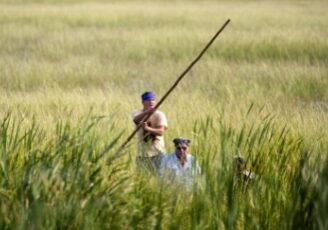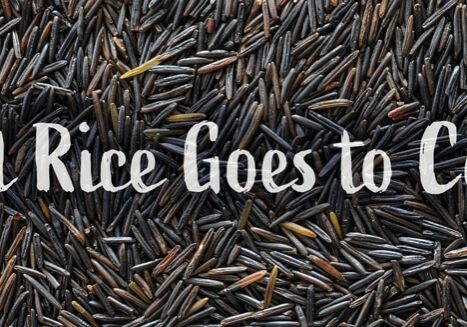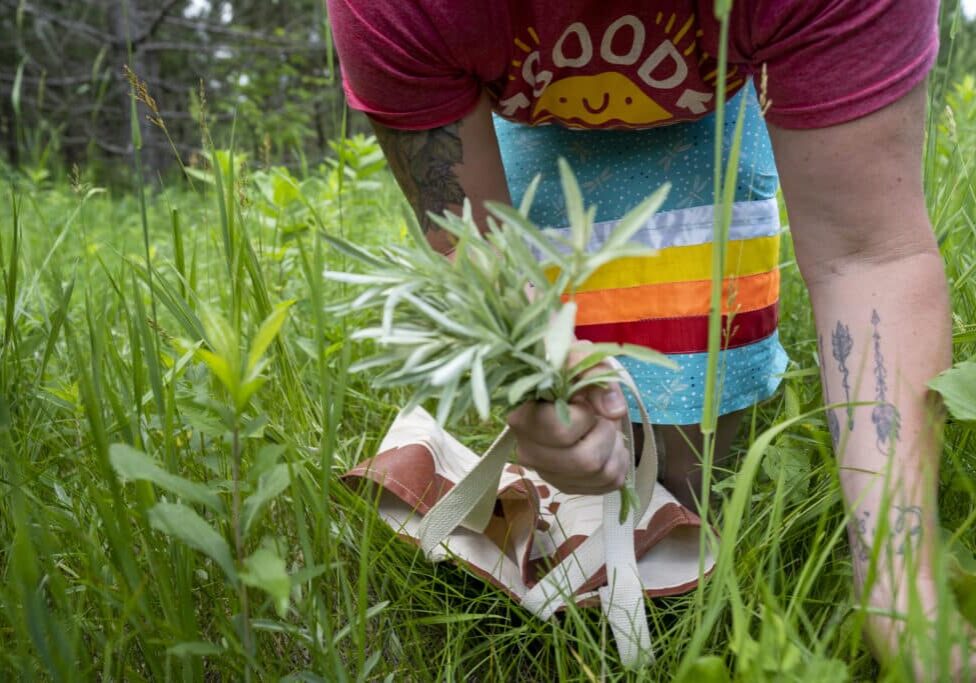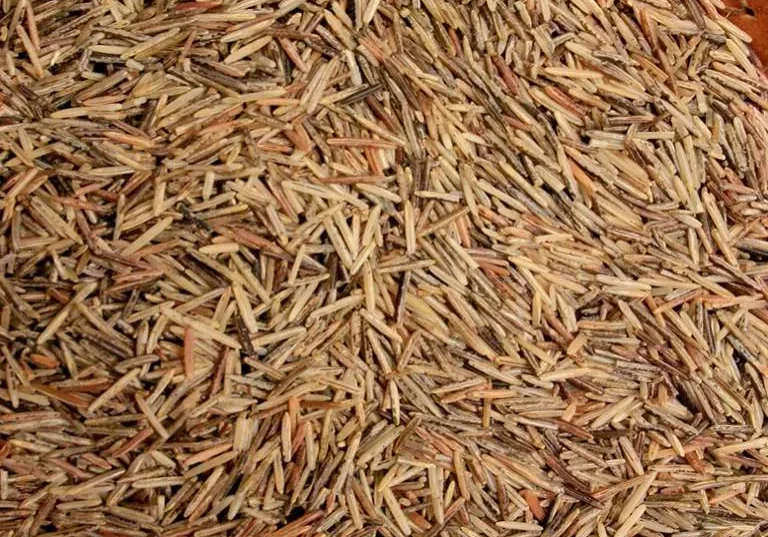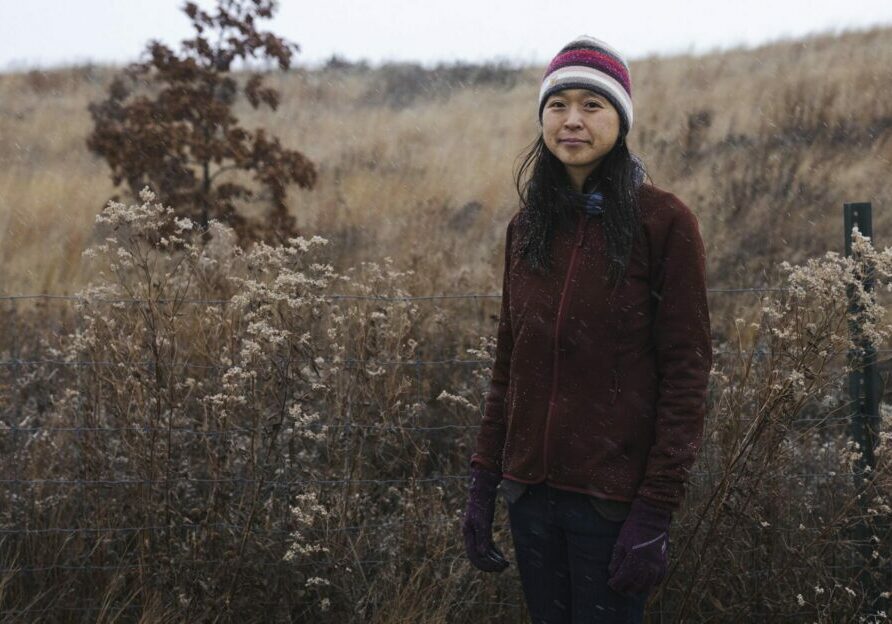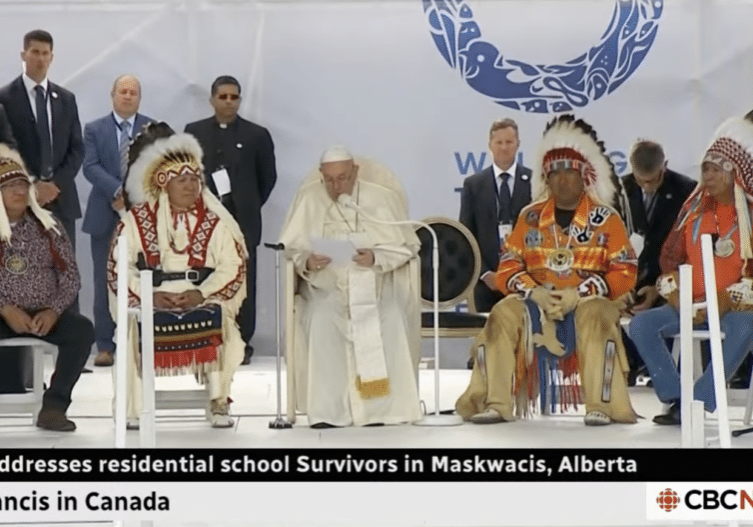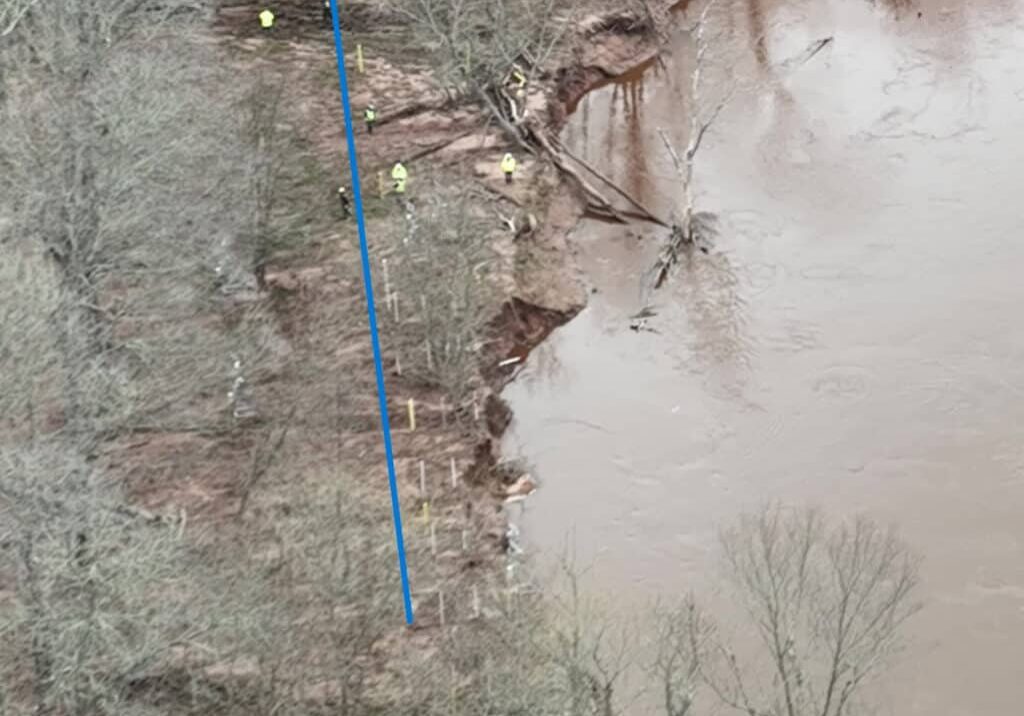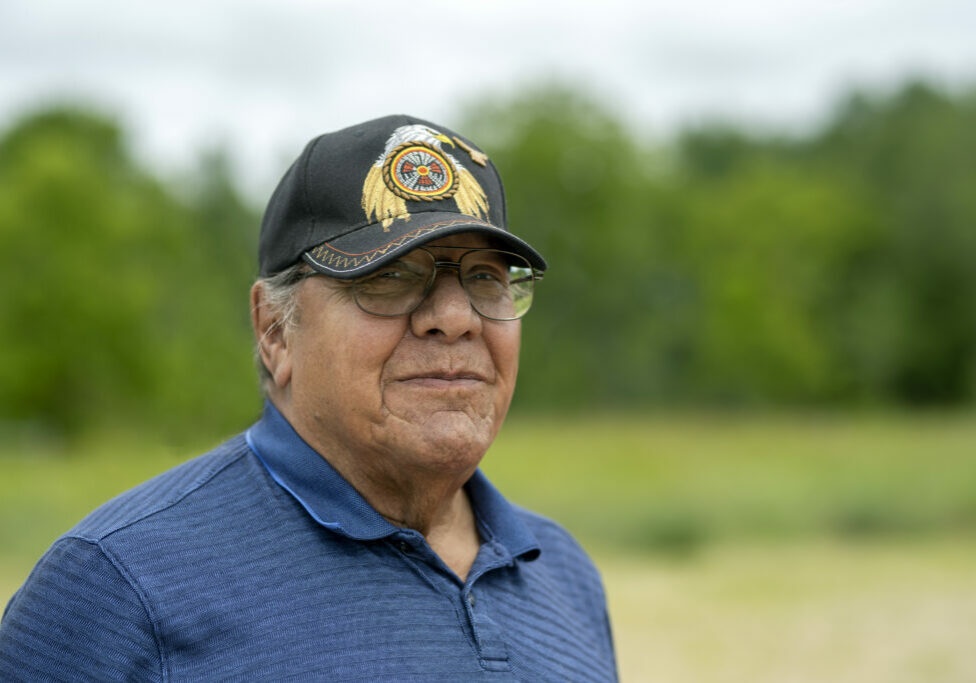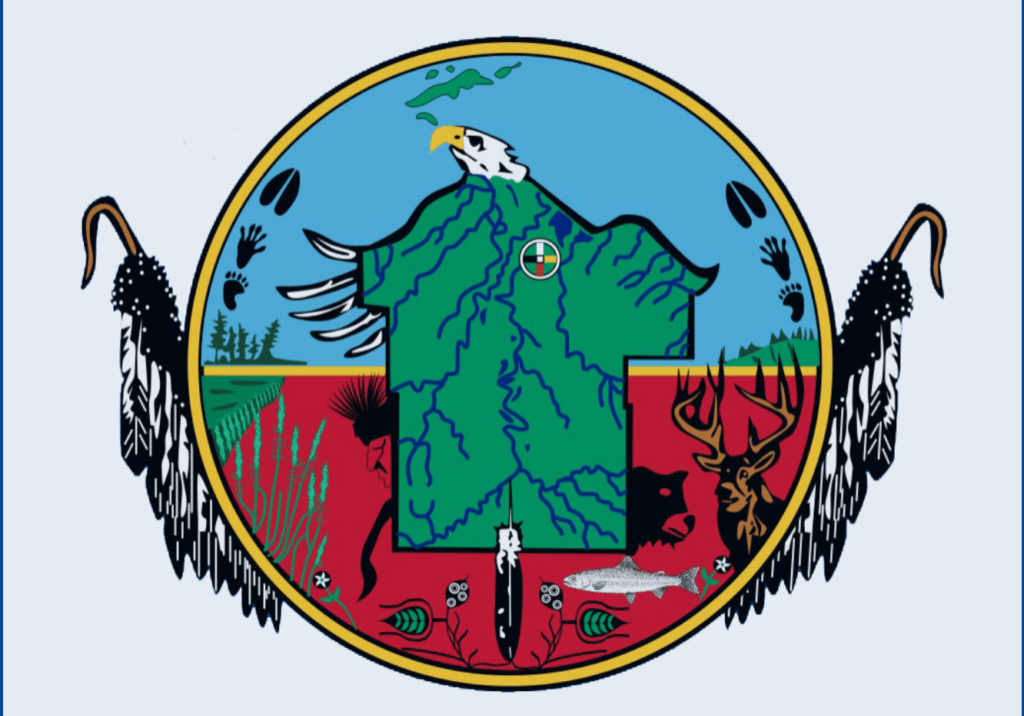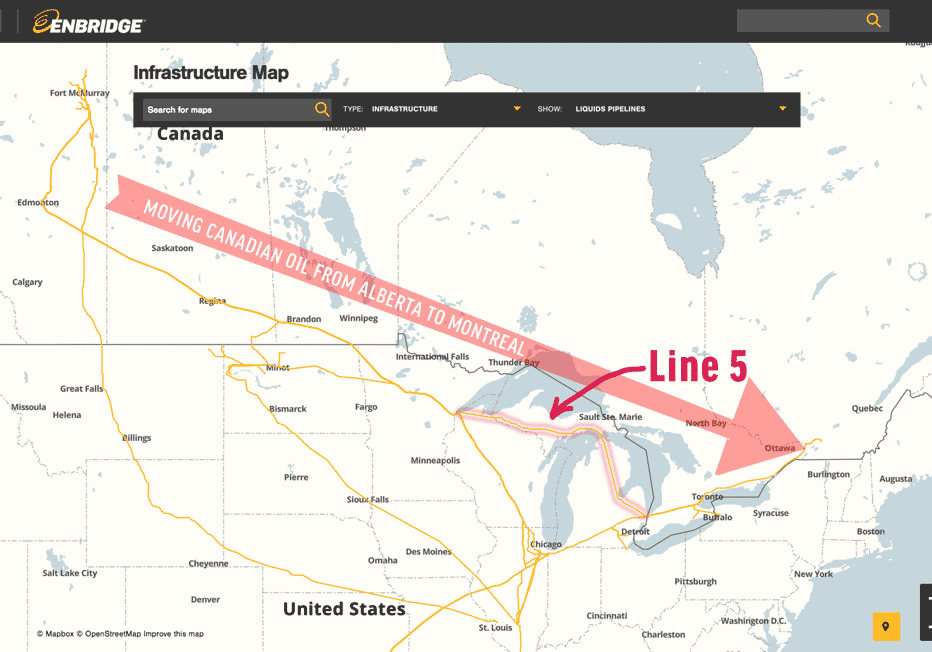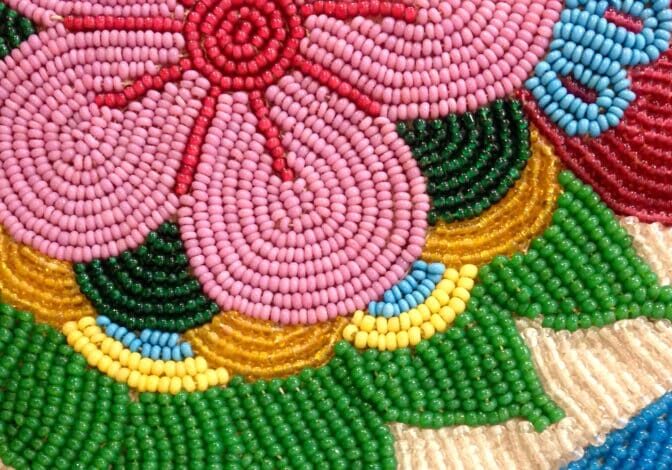Resources at Niibi
The Niibi Center aims to protect and preserve Anishinaabe culture
through the collection and sharing of wisdom and knowledge.
- All
- Current Events
- External Press
- Niibi Posts
Niibi Center Updates and Call for Interviews
Autumn is a rich time here in northern Minnesota, from the vibrant colors of the fast fading trees to nourishing cultural practices like fishing and collecting/processing manoomin. It is a time to enjoy the harvest season by putting up the garden and giving gratitude for the earth’s generosity. Here at the Niibi Center, we wanted to take a moment and reflect back on some of the work we have done this year, as well as to invite and engage the community in our current projects and future work.
MN Bar Association: Wild Rice Goes to Court as the Rights of Nature Movement Hits Minnesota
While it is exciting that the mainstream legal world is beginning to take notice of the rights of nature movement, this particular case of manoomin vs. the MN DNR was thrown out in the tribal appellate court level (the article was written before the decision). The tribal court ruled that they did not have the jurisdiction in the case, which was a disheartening turn in the White Earth tribe’s push to legally protect manoomin (wild rice) which began with legislation in 2018.
Spotlight on the Historical Trauma Healing Program
The Niibi Center’s Historical Trauma Healing program focuses on preserving historical information/records, sharing stories around the effects of boarding school trauma, forced removal and other generational and current manifestations of colonization, and taking steps to help individuals and the community heal from the effects of this trauma.
Updates on Line 3 Damage from Waadookawaad Amikwag – Friends of the Beaver
Many environmental activists, scientists, water protectors and Tribes warned about the possible damage that Enbridge’s Line 3 pipeline could wreak on the delicate watersheds and ecosystems of northern Minnesota. Line 3 traversed over 300 miles across the state and ran pipeline through and under at least 22 rivers and dozens of wetlands. In the process of construction, Enbridge had numerous frack-outs and aquifer breaches, only a handful of which have been reported to the Minnesota Pollution Control Agency and other environmental protection groups.
Protecting Manoomin through Anishinaabe Law
Rights of nature is a movement that seeks to give non-human relatives legal status as persons, and has gotten some traction around the world, as well as here in Minnesota. The White Earth Nation voted to give manoomin (wild rice) rights in 2019, in order to help protect wild rice and the habitats in which it grows. This legal standing is important due to manoomin’s status as not only an integral food source for Ojibwe and non-Native people in Minnesota, but most crucially because of the role manoomin plays at the center of Anishinaabe prophecy, spirituality and culture.
Food & Environment Reporting Network: The Future of Wild Rice May Depend on an Unlikely Alliance
Hoping to halt the decline of the sacred plant in northern lakes, the Ojibwe partnered with scientists who represent a historical nemesis.
Native News Online: Vatican Rejects Doctrine of Discovery
In a landmark statement made today, the Vatican formally repudiated a centuries-old theory of church decrees that endorsed the forceful seizing of Native lands and near-total destruction of Indigenous peoples.
The decrees, or “papal bulls,” underpin “The Doctrine of Discovery,” a legal concept created in a 1823 U.S. Supreme Court decision that justified the forceful seizing of Native land by European colonizers under the guise that colonizers “discovered” the land.
Urgent! Action Needed to Prevent a Catastrophic Oil Disaster in the Bad River Watershed
At this moment, just one more storm could expose the oil pipeline to the river’s current, and we could experience a release of oil akin to what happened in the Yellowstone River in 2011 or the Arkansas River in 2013.
Speakers Announced for Upcoming Anishinaabe Law Conference
The Niibi Center, a local White Earth non-profit, is hosting our first annual Anishinaabe Law Conference June 25th and 26th. Our hope is to learn from other Tribal nations and lndigenous leaders who are currently utilizing natural law in Tribal legal systems and beyond, as well as share wisdom about Indigenous sovereignty and Treaty Rights.
Communities United by Water: Bad River Band Responds to Line 5 Shutdown Order
MADISON, WI — A federal court on Friday ordered Canadian oil giant Enbridge to cease the flow of oil and to decommission within three years the segment of its Line 5 pipeline that is trespassing on the reservation of the Bad River Band of Lake Superior Chippewa Indians. “The Band appreciates the Court putting an end to Enbridge’s flagrant trespass and disregard for our rights. Tribal sovereignty prevailed over corporate profits,” said Mike Wiggins, Chairman of the Bad River Band. “But the Band’s victory is not a cause for unqualified celebration. We are under no illusion that Enbridge will do the right thing. We expect them to fight this order with all of their corporate might. This is just one step in protecting our people and water.”
The Conversation: Michigan pipeline standoff could affect water protection and Indigenous rights across the US
Should states and Indigenous nations be able to influence energy projects they view as harmful or contrary to their laws and values? This question lies at the center of a heated debate over Enbridge Energy’s Line 5 pipeline, which carries oil and natural gas across Wisconsin and Michigan.
Courts, regulatory agencies and political leaders are deciding whether Enbridge should be allowed to keep its pipeline in place for another 99 years, with upgrades. The state of Michigan and the Bad River Tribe in Wisconsin want to close the pipeline down immediately.
Niibi Center Hosts Anishinaabe Law Conference
I had the privilege of attending the First Annual Anishinaabe Law Conference, hosted by the Niibi Center on White Earth, June 25 th & 26 th – 2023. The conference provided a forum where Water Protectors, tribal lawyers and non-tribal lawyers, and nationally and internationally renowned Indigenous legal scholars could begin a formal dialogue concerning what customary, or natural law, is and looks like in practice. Among the honored speakers were Tom Goldtooth, Diné of the Dibé izhiní clan on his mother’s side, Kekek Stark – Turtle Mountain Ojibwe and member of the Bizhiw clan, and Rebecca Tsosie who is of Yaqui descent.
